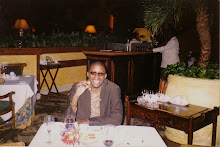(CN) - A Cuban government-owned tobacco company won its 12-year legal battle to stop a U.S. cigar producer from using the Cohiba name and trademark in the United States. A federal judge in Manhattan once again backed up Cubatabaco, which accused General Cigar of "exploiting the reputation and goodwill of the Cuban Cohiba."
VS
Cohibas are among the world's most famous and sought-after cigars, and were originally produced exclusively for Fidel Castro. U.S. District Judge Robert W. Sweet barred General Cigar from using the Cohiba name in the United States, but allowed it to keep using the name on its Dominican-made cigars, pending appeal. Judge Sweet said his most recent opinion was "nearly identical" to his previous finding that General Cigar Holdings had tried "to plagiarize the mark" and engaged in "intentional copying."
His decision was reversed by the 2nd Circuit, which dismissed the federal claims, saying the embargo between the two countries barred the Cuban company from acquiring property in the United States, including trademarks. The U.S. Supreme Court declined to hear the case. But when New York's highest court clarified its position on what constituted unfair competition, Cubatabaco's state law case was back on. The New York Court of Appeals found that "bad faith" wasn't necessary to prove unfair competition by appropriation, only that "deliberate copying" had taken place.
Cubatabaco argued that on the cusp of the 1992 cigar boom, General Cigar selected the "Cohiba" name for a new line of premium cigars "in order to exploit the reputation and goodwill of the Cuban Cohiba," according to the ruling. Judge Sweet agreed, and said the U.S. company's choice was "in part to capitalize on the success of the Cuban Cohiba brand and especially the good ratings and notoriety that it had received in Cigar Aficionado," a magazine for cigar enthusiasts. The debut issue of the magazine proclaimed Cohibas to be Cuba's finest cigars, in an article called "The Legend of Cohiba."
Cubatabaco further claimed that the Cohiba name was protected under the Lanham Act by the "well-known marks" doctrine, even though the company held no U.S. trademarks. Judge Sweet agreed that this was the case, but said Cubatabaco's challenge of the Cuban Asset Control Regulations was obsolete after the state court's ruling. "The New York Court of Appeals held that plaintiff could be entitled to relief against use of its foreign mark if it could establish deliberate copying and secondary meaning, even though the plaintiff had no U.S. trademark rights," Sweet wrote. "For certain kinds of cases ... goodwill can, and does, cross state and national boundary lines."






No comments:
Post a Comment